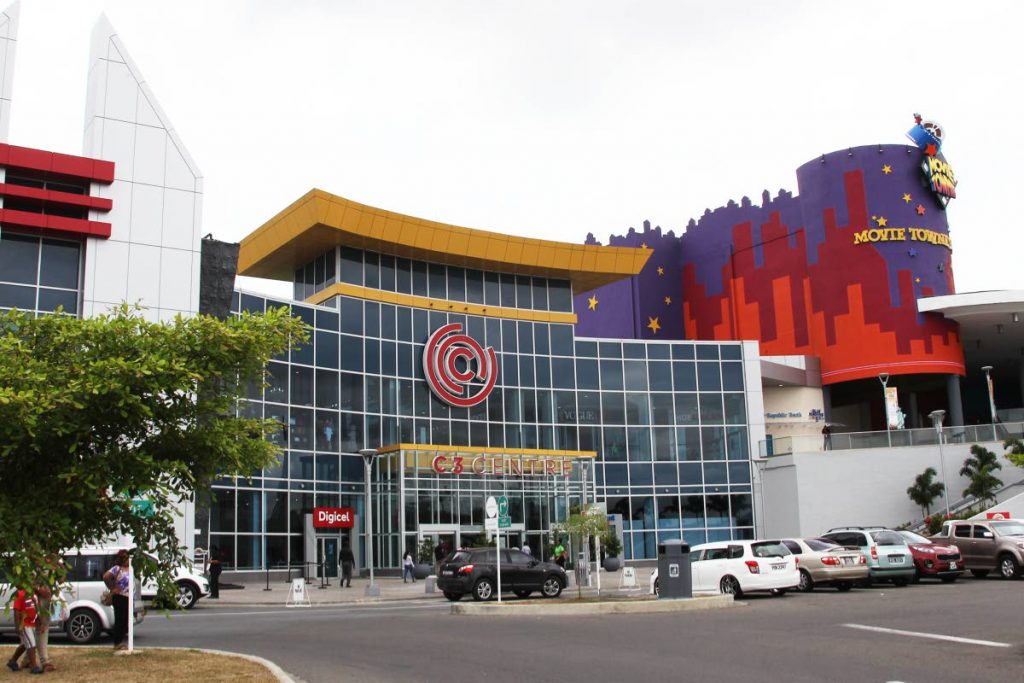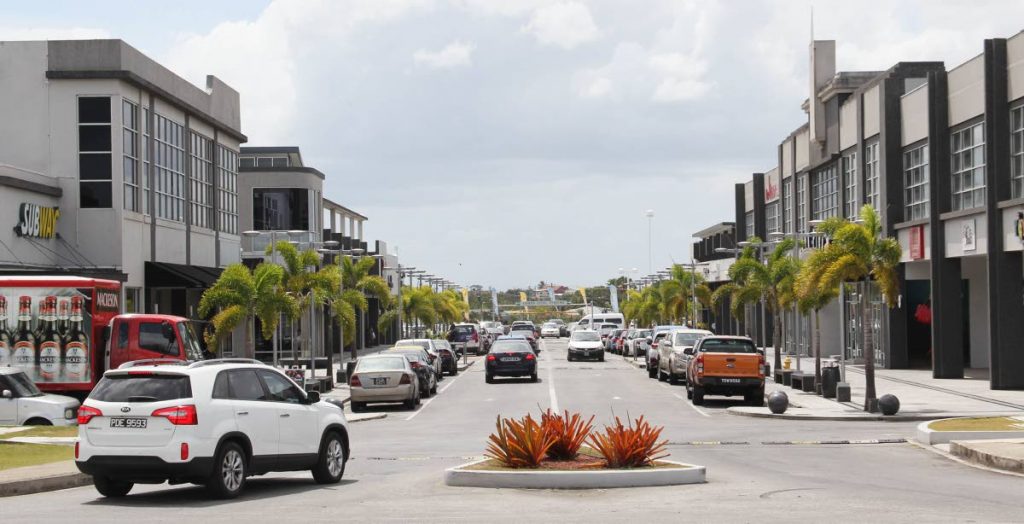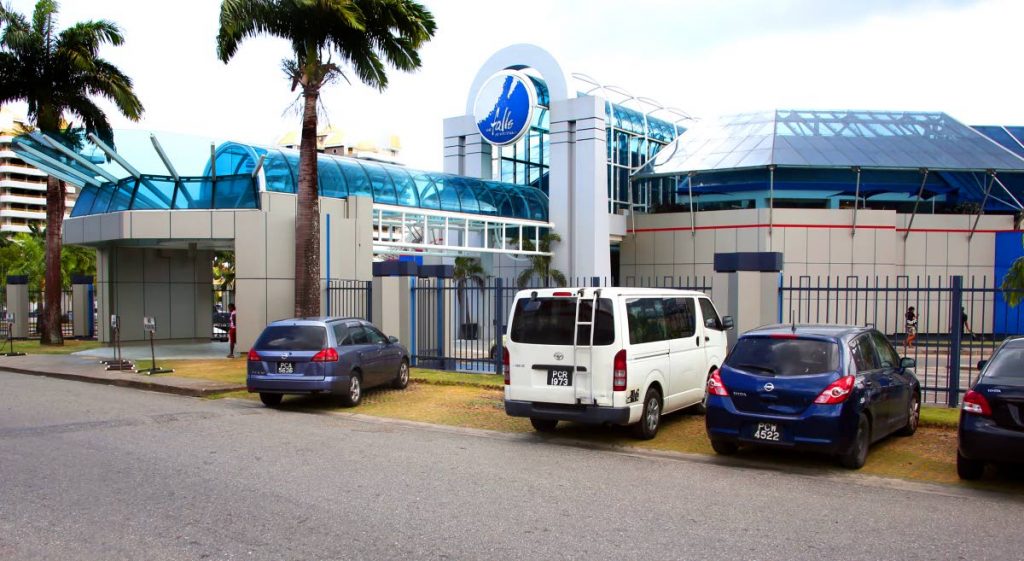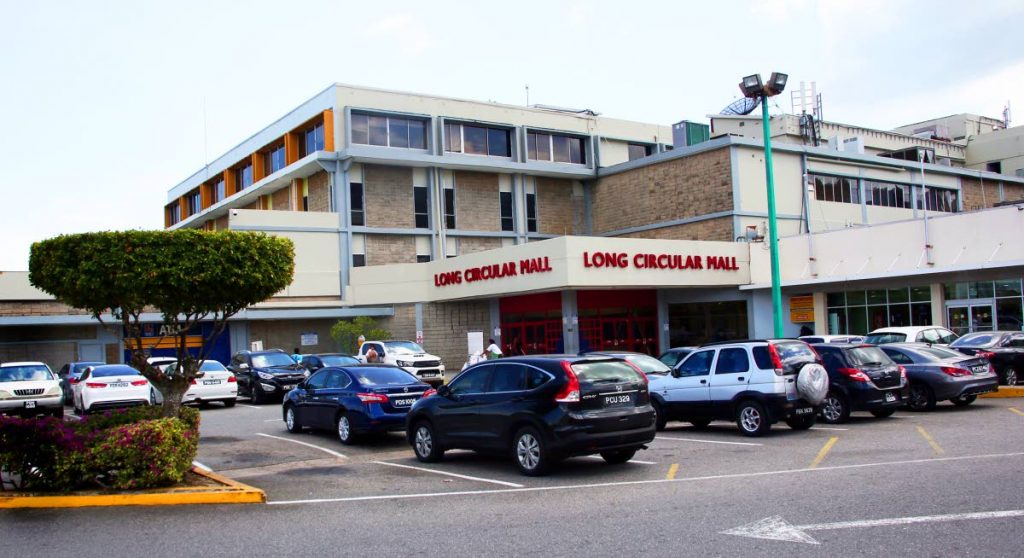Is the recession over?

SHIRVAN WILLIAMS
Despite the government’s claims of an economic turnaround, retailers are yet to feel that impact.
“How can we be out of recession when every day customers saying that they can’t buy anything? We have kept our prices affordable and still people just won’t buy,” one store manager at South Park in Tarouba told Business Day. The woman, who sells household items, said sales have been dismal, and are only getting worse – something she links directly to the closure of the former Petrotrin refinery in nearby Pointe-a-Pierre.

An economic recession is defined as six months or at least two consecutive quarters of negative economic growth. By that definition, TT has been in a recession since the first half of 2015, with a brief recovery in the first and second quarters of 2018, only to slip back into negative growth in the third quarter.
And while there has been some growth in the energy sector, and thus, deposits to the government coffers through increased taxes and royalties, it’s still taking its time to trickle down to everyday people – as Business Day discovered in conversations with shopkeepers, business owners, staff and customers at stores in some of the most popular malls across the country, who chose to speak only under conditions of anonymity. The key question: did any of them feel like the recession was over?
The overwhelming response: no.
This was even though, at the TT Manufacturers’ Association (TTMA) annual general meeting last month, Trade Minister Paula Gopee-Scoon proclaimed the recession over. "We are out of the recession,” she said. “We have had some small growth for 2018."
This was the first time since the recession was officially declared in December 2015 by former Central Bank governor Jawala Rambarran that a government minister had made an official statement about its end.
Since Rambarran’s declaration, TT’s GDP declined by -6.5 per cent in 2016 and -2.0 per cent in 2017, but slightly rebounded in 2018 by 0.3 per cent, according to the International Monetary Fund’s (IMF) World Economic Outlook.
This was much lower than the government’s projected 1.9 per cent growth announced in the budget. The IMF also projected 2019 growth to be zero and just 1.5 per cent in 2020.
But these macroeconomic indicators, as sound as they might be, mean nothing to regular people who are unable to see how they are directly affected by any turnaround.
Inflation, another indicator used to signify economic stability, has been low – between one and two per cent over the last two years. The Central Bank’s monetary policy announcements have suggested that this is because of low consumer demand more than anything else.
The bank’s Economic Bulletin, published in January, noted a slowdown in the global economy in the third quarter of 2018. It also shows a rise in unemployment, although the impact is not clear. The CSO’s latest unemployment figures are from the fourth quarter of 2017 – over a year old. The official rate is 4.4 per cent, down from 5.1 per cent the previous quarter, but also showed that the labour force shrunk by 7,600. These figures also obviously do not consider the nearly 6,000 jobs last year when state enterprises Petrotrin and TSTT restructured.
Cutting back on spending
Many of the staff and owners in south malls who spoke to Business Day said they had seen a significant decrease in sales since the closure of Petrotrin.
Tech and recreation outlets seemed to be bucking the trend, at least a little. In South Park, a cellphone store manager said the last month had been slow, but she was confident business would soon pick up. She wasn’t sure if the recession had affected her sales or not, but when people came into the store, they usually bought something before leaving.
Workers at a vape store said they’ve seen an increase in sales, especially during the last Carnival season. One worker said he believed sales had been increasing because of people’s interest, trends in technology and the price of the products they were selling.
The C3 Centre in Corinth had a lot of people, but not many seemed to be shopping.
“People are not shopping as freely as they did last year. There’s been a slight decrease. People are just looking around and leaving. Customers still think prices are a bit high. So I’m not sure we’re out of a recession just yet,” said one worker at a stationery story.
One shoe store worker said people were more hesitant to buy, but she was hopeful that would soon change.
Business Day spoke to a former Petrotrin employee about how his spending habits had changed. He said he did not believe that the country was ever in a recession, but feels with the closure of the refinery, it is inevitable now. He could no longer afford to take his family to any of the malls except for necessities – it’s no longer a leisurely affair, when he could do a bit of shopping and go to the food court afterwards.
He feared for his former colleagues who started their jobs recently and now are faced with giving up their homes because they simply can’t afford the mortgage. Even though people received different packages, he believed everyone who was fired will be cutting back, and this will definitely cause major upheaval in the economy.
“We’re not just talking about the 5,000 or more people that lost their jobs, but the contractors, cleaners and the food vendors.
"Of course, we had to cut back too, because we have no money coming in. Even with something like my light bill, it’s not business as usual. We’ve had to cut back on groceries too.”
It’s a whole ripple effect, he said, and it will continue, causing a downward spiral in the economy.
Empty spaces everywhere
San Fernando area business seemed to be thriving at the more popular malls – at least, there were fewer empty storefronts compared to malls in the north.

At West Mall, Westmoorings, several stores were closed, with no signs indicating relocation or downsizing. One manager at a popular clothes store believed at least ten stores had closed in the last six months. He said the issue is complicated – even though the country might be out of a recession, people still aren’t willing to spend. When he opened four years ago there was a greater willingness to shop and spend, but now, he says, “People are watching every cent that they have.”
Things were tough last year, but he expected to see a small increase in sales this year.
Some stores have managed to maintain steady sales because of their high-end products. A clerk at a shoe store admitted her sales had never really been affected during the recession and there hasn't been any fluctuation in sales because most of her clientele are wealthy.
On the other hand, one frustrated kiosk owner said this was her business’s worst performance in 13 years. She once had a bigger store but had to reduce it to a kiosk to keep her business afloat. She also noticed a further drop in sales after the layoffs at Petrotrin last year, and has seen several other stores at the mall closing since then.
A manager at a store that specialises in vape accessories said people are still being conservative and very cautious about spending on luxury items, and sales had fallen slightly in the last two months. He didn’t see it as a cause for concern, really, but he did also notice a lot of people browsing but not really buying anything.
When Business Day asked West Mall management to take photos of the closed stores, the request was denied, and no further comment offered. One worker did say, however, that mall and shop owners were currently negotiating contracts.
The situation seemed bleaker at Long Circular Mall, St James where, even though the car park was full, stores were mostly empty. Most people, it seemed, were spending their money at the food court.
The owner of a store that sells handbags and other accessories felt the situation was steadily deteriorating. She was one of the very first shop owners at the mall, having opened in 1979, and even though she had seen many stores open and close, she’s never seen so many closed during one period. By her estimate there were at least 13 vacant stores in the mall.
She has not yet felt the effects of a better economy. Asked about the minister’s comments, she said, “The rest of us mortals are not enjoying the same privilege.”
Even big-name shoe stores like Clark’s had recently closed at the mall, she said, and some store owners had to use drastic measures to save their business.
“This is as a direct result of no sales. We still have overhead costs, staff to pay, rent to pay, duties and taxes.”
She has tried to use social media to generate sales, but people just weren’t buying.
“I know people who have sold their homes just to keep their business. Nobody here is doing well. Businesses are closing early and opening later. I don’t see how we are out of recession.”
Another worker at a shoe store said it was “clearly impossible that we are out of recession.” Even peak times like Christmas were slow.
“We are still trying to recuperate from the recession. Even veteran stores are closing down.”
Heartbroken and frustrated
The owner of a once-popular souvenir shop said she would be closing at the end of April after 26 years at Long Circular. The store was her 'baby," she said, and the decision to close was devastating. “People simply are not shopping any more,” she said sadly.

Her business has been negatively affected by the recession and the fact that people don’t seem to be travelling abroad as much, she said. Things had been so slow, she recalled, that month, she made a little over $300.
One store owner at Trincity Mall said she was enraged at the minister’s comments, especially when there was such a shortage of US currency.
“I haven’t been able to get one US dollar for the year. You have to line up and then (the banks) are telling you there is none.”
Sales have been extremely slow – the worst she’s seen in 17 years. The situation was heartbreaking, she said, because she has been in business so long and doesn’t know what else to do to make it work, as people are just not buying.
“We have no redress, no concession. They have the money and we are fighting for the economy.”
Mother’s Day bump but not sustainable
At Shoppes of Arima. store workers and managers had mixed feelings about the growth of business. Luxury/higher end goods fared relatively well. At a kiosk that sells beauty products, an employee said she saw an increase in sales over the last six months. She also anticipated sales will continue to increase.
A popular stationery store’s manager said business had been good and was hopeful that it would increase even more as Mother’s Day approaches. She believed sales hadn’t changed much because of the type of products on offer.
“We cater to everyone, including those who can afford the higher-end products and those on a budget.”
At one clothes store, however, things were not looking up. The manager said this year was the store’s worst for sales since it opened seven years ago. By her estimates, they were down 50 per cent.
Customers have had to prioritise, which cut into their spending habits. One woman who described herself as a “shopaholic” said she couldn’t be so free anymore.
“Now I have a lot more things to see about. It’s not just me; I think it (the recession) still hitting some people hard.”
A man at Valpark Shopping Plaza did not agree the country was out of recession, adding that the minister’s statement was “not a good statement at all.” He said he was currently unemployed and could not access any government pension. “I have to watch every cent I spend.”
At a jewellery store, the manager said her sales were poor. The store, around for eight years, has had a sharp decline in the last year. While she wanted to remain positive that things will turn around soon, she did not believe the recession is over.
One consumer, though, felt the economy was turning around and that things were looking up.
“No, I don’t feel we are still in a recession. I think things are a little better now. You can see this with all the progress like new buildings going up,” she said.
A greeting-card store manager said sales had been cut by about half within the last year. People were buying fewer luxury items and focusing on the essentials. Even though Mother’s Day is Sunday, she didn’t anticipate too much of an increase in sales.
“Things are nothing like they used to be.”
At Grand Bazaar, there were many people but store managers still felt there was no improvement in sales.
One clothes store manager said regular sales are slow, but peak seasons are still pretty good.
One shopper insisted she was a smart spender and always made sure to budget before spending.
A manager at a party supplies store said her sales had been very low in the last eight months and though many people are coming in, they are spending very carefully.
Even wedding supplies, her primary source of sales, have been cut significantly.
“People are watching every penny they have now. In this type of economic crisis you just don’t know what’s going to happen next.”

Comments
"Is the recession over?"